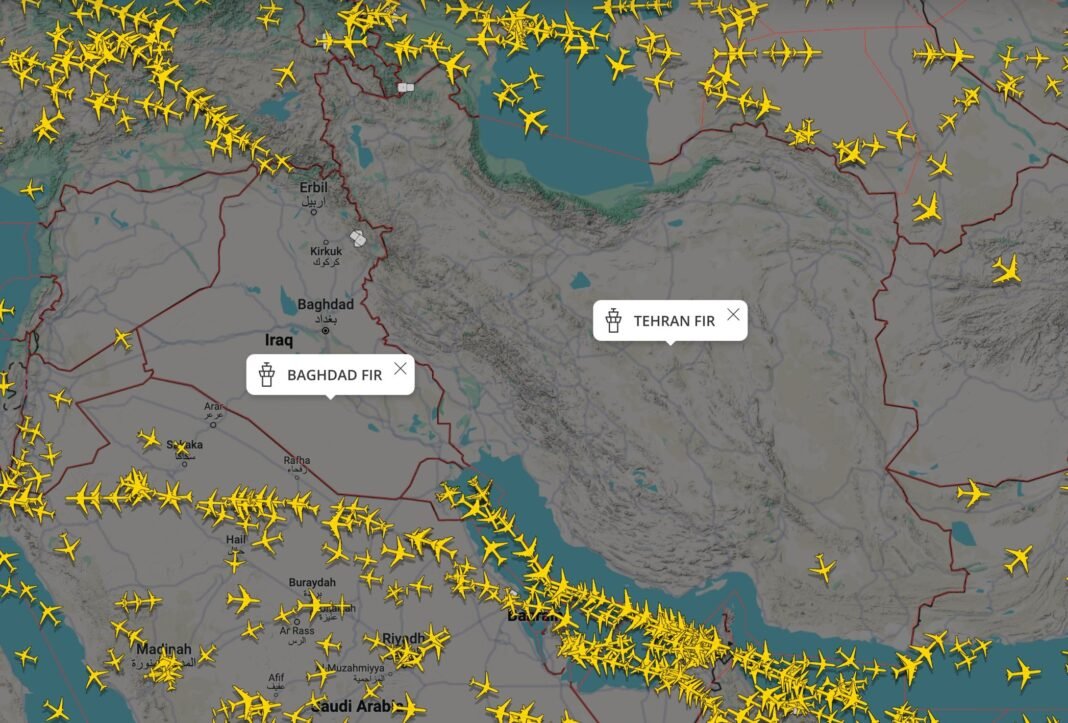The Iraq aviation losses continue rising each day as the country’s airspace stays closed amid growing Middle East tensions. Since June 13, Iraq has halted all overflights due to the escalating conflict between Iran and Israel.
This decision has severely impacted the aviation sector. Airlines, airports, and government agencies are now losing millions in revenue every single day. Officials confirmed that over 700 daily flights once crossed Iraqi skies, including both cargo and passenger aircraft.
Each flight paid an average fee of $450 to $700, depending on type. These fees generated crucial non-oil revenue for Iraq’s budget and covered essential aviation services. In May alone, Iraq recorded over 19,800 transit flights, highlighting its regional role in air traffic.
Now, with the skies silent, daily losses exceed $250,000, and that’s only direct overflight fees. Indirect losses from airport operations, staff wages, and ground services push the total much higher. Financial strain is increasing across the entire aviation sector, affecting regional logistics deeply.
Airports in Baghdad, Erbil, Najaf, and Basra have all scaled back or suspended operations. Basra Airport handled just 13 flights since the closure. Local airlines such as Iraqi Airways and Fly Baghdad now struggle to stay afloat in difficult conditions.
Revenue from overflights usually supports salaries and allowances. Without this funding, workers face delayed payments and growing financial uncertainty. Flight rerouting has also shifted global traffic patterns in response to the regional shutdown.
Flights now pass through Saudi Arabia and Afghanistan instead. This change doubled traffic over Saudi Arabia and increased Afghanistan’s flight activity by 500 percent. Travel times have increased by up to two hours on some routes. International airlines like Qatar Airways and FlyDubai have been affected by detours.
The Iraq aviation losses reflect deeper vulnerabilities in the country’s economic structure. As the situation continues, financial pressure could worsen significantly. If airspace remains closed, Iraq aviation losses will continue mounting with long-term consequences for national stability.





